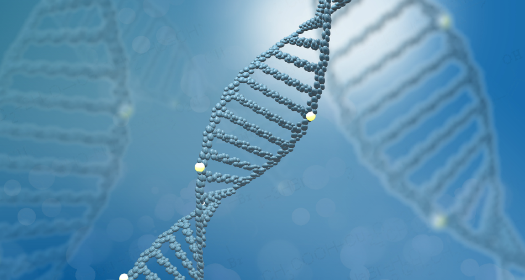PharmaSources/YefenghongAugust 21, 2019
Tag: Medical , Anticancer Drugs , epigenetic , nucleotide sequence
I’d like to introduce a new type of anticancer drugs—epigenetic drugs here today, which are a new area that has arisen in the medical world in recent years.
Let’s first see what epigenetics is before knowing the drugs. Epigenetics was coined by Conrad Waddington, a British developmental biologist, in the 1950s to describe the interactions between the environment and the genes in the developmental process, which regulate and decide the ultimate fates of the tissue and organs. Epigenetics mainly studies the heritable changes in gene expression without a change in the nucleotide sequence.

Relationships between epigenetics and cancers
Coding mutations in epigenetic regulatory genes are very common in tumors, with the outcomes mainly reflected in four aspects: DNA promoter hypermethylation, genome-wide DNA hypomethylation, abnormal histone modification, and abnormal chromatin structures. Promoter hypermethylation leads to inhibition of tumor suppressor gene transcription; genome-wide DNA hypomethylation causes the genome to be unstable and may cause abnormal activation of oncogenes; mutations of histone-modifying enzymes in tumors, including histone methyltransferase, demethylase and acetylase mutations, etc., will also cause abnormal gene expression and thus decide the tumor cell phenotype. All those epigenetic changes will affect the tumor cell growth, immune escape, metastasis, heterogeneity, and drug resistance, etc. and some may even directly cause tumorigenesis.
What are the epigenetic drugs?
Researchers interested in the combination of epigenetic therapy and immunotherapy mainly study two classes of epigenetic drugs at present. And if you want to know more about epigenetic drugs, Pharmasource, a professional platform where thousands of medical supplies manufacturers are gathered together, would be your best choice.
The first class is the histone deacetylase (HDAC) inhibitors. Such class of drugs acts on the histone that wraps DNAs and functions by controlling the tightness of the DNAs wrapped around the histone. The HDAC makes the DNAs more tightly wrapped around the histone through the histone deacetylation (acetyl removal), which causes the DNAs to be not easily contacted by gene transcription factors. As a result, the expression of the protein associated with factors promoting cancer development, including cell differentiation, cell cycle arrest, tumor immunity, and damaged cell apoptosis, etc., is inhibited.
The second class is the DNA methyltransferase inhibitor (DNMTi). This class can prevent tumor cells from genetically adding methyl. DNA methyltransferases can silent the gene delaying cell division and can thus promote uncontrolled cell proliferation. There are two kinds of DNMTi: one is nucleotide analogs that bind to the DNA to form covalent complexes that will promote DNMT degradation, including azacytidine and decitabine. The said two drugs have been conducted over 200 relevant clinical trials in leukemia and solid tumors and have been approved by the U.S. FDA and EMA for the treatment of acute myeloid leukemia, chronic myelomonocytic leukemia, and myelodysplastic syndrome.
Difficulties for the clinical application of epigenetic drugs
Specificity is one of the biggest difficulties that restrict the clinical tumor treatment of epigenetic drugs. Firstly, the mutant epigenetic factors do not singly modify certain genes, certain stretches of DNA, histone, or chromatin, and the results may be one-to-one or one-to-many. Secondly, there are also problems with drug therapies, for example, the DNMTi functions broadly and has no specificity. When the DNMTi is used to reactivate the inhibited tumor suppressor gene, there is the risk of activating the highly expressed oncogenes. Furthermore, in different histiocyte tumors, mutations are changing while the tumors progress. Whether individual factors affect the efficacy of epigenetic drugs still needs further research. How to solve the high dose dependence and improve drug efficacy is also a difficulty to break through.
Despite the problems, epigenetic therapies have shown certain new advantages over traditional drug therapies. Epigenetic changes play an important role in tumor immunity. The expression of tumor antigens is caused to decrease due to the high methylation of promotors of antigen genes, which cannot be recognized by the antigen-presenting cell (APC), resulting in the immune escape. In early clinical trials, some epigenetic drugs (such as DNMTi) were discovered to effectively stimulate the expression of the major histocompatibility complex and enhance the killing effect of effector T cells against tumors. Therefore, the combination with epigenetic drugs could improve the efficacy in immunotherapies. On the other hand, the drug resistance of traditional anticancer drugs in treating tumors has been a problem difficult to solve; drug-resistant cancer cells show a high chromatin inhibition, and using epigenetic drugs could inhibit the drug resistance and enhance drug efficacy; also, epigenetic drugs could directly act on cancer cells already with drug resistance and inhibit or kill the cells. I believe that more epigenetic drugs will be approved for marketing in the next years, and such emerging drugs will inject the new vitality to the tumor treatment.
Ye Fenghong, a medical editor specializing in oncology at a healthcare internet company, has conducted in-depth research on the pathogenesis and clinical treatment of lung cancer and breast cancer. She has previously been involved in the design and synthesis of anti-tumor drugs and has some experience in computer-aided drug design. She is currently devoted to introducing cutting-edge cancer treatment drugs to a wide range of readers, aiming to help more people avoid cancer pain and embrace good health.
-----------------------------------------------------------------------------
Editor's Note:
To apply for becoming a contributor of En-CPhI.cn,
welcome to send your CV and sample works to us,
Email: Julia.Zhang@ubmsinoexpo.com.


Contact Us
Tel: (+86) 400 610 1188
WhatsApp/Telegram/Wechat: +86 13621645194
Follow Us:




 Pharma Sources Insight January 2025
Pharma Sources Insight January 2025


